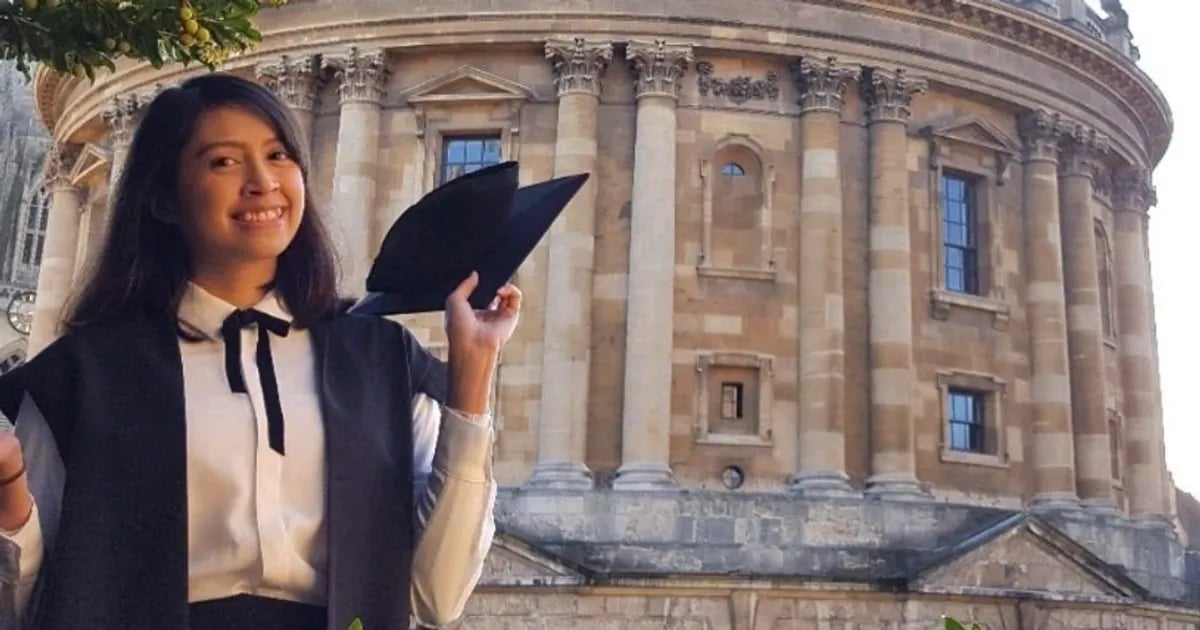My background
My name is Wian Satyapertiwi, and I’m from Jakarta, Indonesia. In my country, I attended SMA Negeri 8 Jakarta, a government-owned high school. After graduating, I pursued my undergraduate studies at Universitas Indonesia. For my master’s degree, I had the opportunity to study at Imperial College in London.

Why study abroad
My background is primarily in science, and I enjoy conducting research. I feel that Indonesia is still somewhat behind in terms of scientific research. Moreover, I wanted to pursue a higher quality education, immerse myself in a new culture, and experience living independently in a foreign country.
My experience at Imperial College
At Imperial College, I pursued an MRes degree—a master's in research in Bioengineering. The structure of the program included a three-month coursework phase followed by nine months of research. There were no exams for the coursework; instead, students needed to meet a minimum grade requirement through a final presentation or report. The course placed a stronger emphasis on the research component.
I chose an MRes over an MSc because I intended to pursue a PhD. Conducting research within just nine months was challenging, but it was a valuable experience. In between my studies, I enjoyed going to Yoga practice held by the student club at Imperial, or going out with friends visiting various museums and galleries in London.
Application process for PhD in the UK & scholarship
Applying in the UK is a bit weird because you need to apply one year in advance of your starting date. So technically, when I started my master’s, if I wanted to go straight from master’s to PhD, I should have applied immediately when I started. I did apply then, but I had to split my attention between the application and doing my research. It’s not easy, and I didn’t get any results in my first round.
I started applying again for my PhD after finishing my master’s degree while I was working as a research assistant. Unlike applying to a master’s program, you need to identify your specific research interest before starting your application. Afterwards, it is important to find a supervisor whose research aligns with your interests. You usually start by identifying potential supervisors, reaching out to them with your research background and interests, and seeing if they’re open to taking on new students. Once you’ve found a match, the next steps involve preparing your research proposal, gathering your academic documents, and submitting your application through the university portal. Some programs also require interviews, presentations, or additional materials, depending on the university.
Oxford University and the Jardine Foundation Scholarship
I applied for the Oxford University program, and then to one of the associate colleges for the Jardine Foundation scholarship. The foundation has four associate colleges at the University of Oxford: Exeter College, Oriel College, The Queen’s College, and Trinity College. I put my application into one of the four—Exeter College.
After receiving my application, they automatically screened whether or not I was eligible for funding. After I received an offer from the college, they stated that I was eligible for the scholarship and asked if I was interested in applying. I then submitted my application through the college, which sort of pre-screened it before sending it to Jardine. After it was sent, I received an interview and was awarded the funding for my PhD.
The Jardine Foundation Postgraduate Scholarship is part of the Jardine Matheson Group and helps fund education at Oxford or Cambridge. You must be a citizen of one of the eligible countries. These are typically ASEAN countries, China, and a few others.

Oxford University social scene
One of the best parts of attending Oxford University is the social scene—it’s what makes college life really fun and memorable. I really like the Graduate High Table. It’s a formal dinner—it’s kind of like an Oxford tradition where you wear a fancy dress or formal outfit to have dinner in your college. The Graduate High Table and another one called the Subject Family Dinner are times when you get to meet other graduate students.
For Subject Family Dinner, you sit with students who are in your same subject area. There is a scientific talk before the dinner, where students are invited to give short presentations about their project. During dinner, you can meet new people in your field, have a chat, share your struggles as a PhD student, and just eat together.
So that’s kind of part of the social scene at Oxford University. There are more social things too. At Oxford, you have something called the Middle Common Room (MCR) and the Junior Common Room (JCR).
The JCR is basically the student body for undergraduate students, and the MCR is for postgraduate students. Everyone who’s a postgraduate student at Exeter is automatically a member of the MCR. They organize a lot of social events, like Welfare Tea, and sometimes they even bring alpacas to the college for mental health events. They also bring dogs to the MCR room sometimes, which is so nice.
Exeter College also has a cat. He’s brown and white, and his name is Walter. He just hangs around and likes to be pet—if he’s in the mood to be kind enough.
There are all these fun little things that make being in college really enjoyable.

Facing obstacles during PhD
I think for anyone starting in 2019, the biggest challenge was COVID. It derailed my experimental plan, and since I was just starting my PhD, that sort of pulled the rug out from under my feet. COVID was something no one could have predicted.
In general, the obstacles you might face, especially if you’re doing biological or medical research, are that as you do more and more experiments, you experience more and more failures. This can be very demotivating, and sometimes it’s hard to remember your initial intention and motivation.
A PhD is a marathon—it’s a long journey, unlike an MSc or an MRes, which end in just one or two years. You just have to keep going, surround yourself with people who motivate you and encourage you to move forward, and basically just try again every time you fail.
My thesis
In simple terms, my research focuses on correcting DNA mutations that cause genetic diseases. Specifically, I work on cystic fibrosis, a disorder caused by a genetic defect. To correct this defect, I use a genetic repair tool called CRISPR prime editing, which is delivered using a viral vector. However, this is not the kind of virus people typically think of. Instead, it is a repurposed synthetic virus, designed solely to deliver the genetic editing tool to the DNA and correct the mutation.
The Research Process
Basically, you come up with the idea first, then discuss it with your supervisor to figure out how to approach certain problems and how to tackle them. You also determine the best way to design the experiment. This includes learning how to properly set up a scientific experiment, ensuring that you have the right controls in place.
Then, you conduct the actual scientific work in the lab. Of course, it all starts with reading papers and preparing for how you’re going to carry out the research. After that comes the experimental phase, where you apply the genetic editing tool and analyze its effects.
At the same time, you need to do data analysis while also keeping up with the latest scientific literature, reading all the published papers that are relevant to your work. Staying updated with the field is crucial to ensure your research is aligned with the latest advancements.
Submitting my thesis
Before COVID, the way you submitted your thesis was by printing it, so you’d have a hardbound copy and actually submit it to the library. Now, things have changed. You just upload a PDF file of your thesis—the one you’ve struggled to write for six months—and click submit on the online portal. You get a green tick, and that’s it.
I submitted my paper at 9 PM, one day before the deadline, with my friend. We were in the lab submitting together, and when I clicked submit, we just looked at each other like, “That’s it? We’re really done?”
After submission, you need to wait around six to eight weeks for the thesis defense, which we call the viva voce, or just viva for short.
The viva itself is a really interesting experience—you’re defending your work for about three hours. Then, they ask you to leave the room while they discuss what kind of result they’ll give you. After waiting, my examiner came out and said, “Congratulations, we’re going to recommend you for minor corrections.”
That’s what the majority of people get—minor corrections. Some people get no corrections, and a few get major corrections, which means you get up to six months to do more experiments or rewrite certain parts.
Future plans
After finishing my PhD, I had the opportunity to work as a scientist at a biotech startup. I’d like to gain more experience in biopharma and eventually transition to a larger company.


